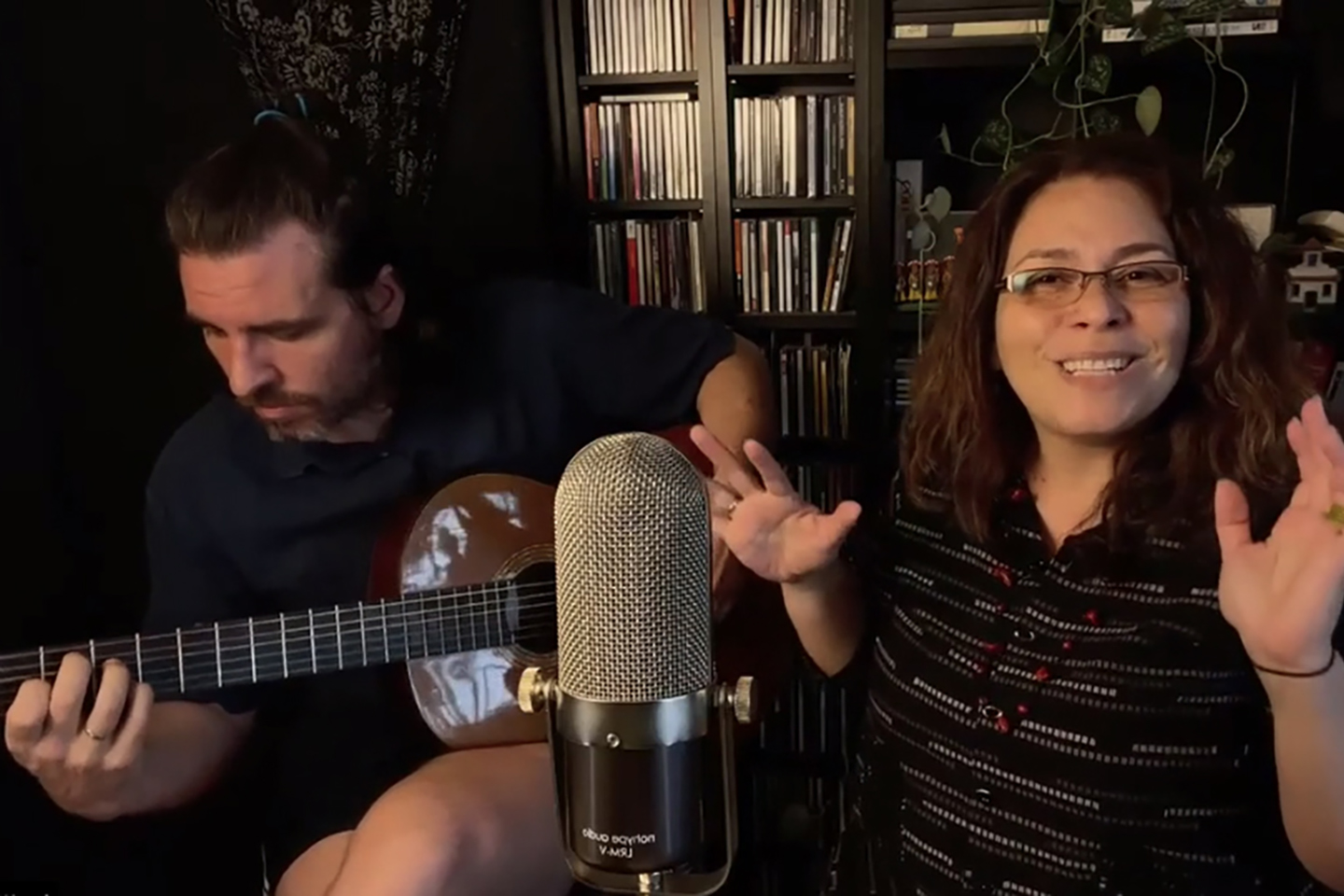
How do you conduct global educational programming when international travel is impossible? For MIT Global Languages Director Emma Teng and MISTI Executive Director April Julich Perez the answer was to bring international culture and experiences to the students through an online First-Year Learning Community, Tutmonda. Through this pilot program, students had a chance to experience and discuss topics from the international response to the pandemic, to Chinese puzzles, Spanish urban planning, Japanese coffee culture, African design, French and Brazilian pop music, and more. They also had a chance to try their hands at making Japanese bentos, German apfelkuchen, Korean bibimbap, Japanese pour-overs, and other culinary delights, as well as traditional European letterlocked letters.
As a response to the global pandemic, Tutmonda was created to foster community among entering first-year students who view international experiences as central to their educational trajectory, and who are committed to exploring MIT’s “Global Classroom” by learning new languages and cultures. Tutmonda also sought to give students a greater sense of connection during the physical isolation imposed by the pandemic with weekly meetings and online activities. One theme was global responses to the Covid-19 pandemic, including how policies and policy reception are affected by culture, and students worked in small groups to prepare presentations on the topic.
A collaboration between MIT Global Languages (Course 21G) and and MISTI (MIT International Science and Technology Initiatives), Tutmonda gathered weekly for informal, noncredit meetings featuring a range of engaging guest speakers, hands-on cooking workshops, alumni panels, and other activities relating to languages, cultures, international relations, and global programs at MIT. Students also had access to curated asynchronous activities and resources, for example, Food of the Month, Film of the Month, Virtual Museum of the Month, Painting of the Month, Puzzle of the Month, and Composer of the Month: all from different cultures around the world.
Professor Emma Teng and MISTI Executive Director April Julich Perez hosted and curated the sessions. This article describes the fall sessions. This spring, sessions and topics included:
- Global Shakespeares with Prof. Diana Henderson (MIT Literature)
- International Relations in the EU and East Asia with Profs. Suzanne Berger and Taylor Fravel (MIT Political Science)
- Globalization and African fashion with Prof. Amah Edoh (MIT Anthropology)
- Korean Food Culture with Nicole Park, of the Institute of Traditional Korean Cuisine
- Multilingual rebus share (a rebus is a puzzle that combines both letters and pictures to convey a message)
- Hands-on Letterlocking workshop (Letterlocking is the technique of folding documents so that they function as their own envelopes) with Jana Dambrogio (Thomas F. Peterson Conservator, MIT) and Daniel Starza Smith (King’s College, London)
- French pop music with Leanna Rezvani (MIT) and Brazilian pop music with Nilma Dominique (MIT) with guest performance by Anna Borges & Bill Ward
- Coffee Life in Japan with Prof. Merry White (BU Anthropology), plus pour-over demo
- Chado, or the Way of Tea, demonstration by Kyoko Wada
- British tea culture, Stephen Barnes (MIT-UK)
- Sean Gilbert, MISTI China and Charleston Sin, Hong Kong Innovation Node
- How VR (Virtual Reality) is being used for language and culture education, with Dr. Takako Aikawa (MIT) and Dr. Nicole Mills (Harvard)
- Prof. Mike Short, NSE and Dr. Ta Corrales Sánchez, D-Lab, talk about their experiences using foreign language in their professional fields.
- MISTI alumni panel
- Student presentations on Covid-19 international perspectives
MISTI Executive Director April Julich Perez said “With student travel suspended during the pandemic, MISTI was thrilled to be able to offer first-year students the opportunity to discover new cultures and countries via their language, cuisine, art and ideas.” She continued, “we are looking forward to matching all of the participating students with an experience abroad in the near future.”
Professor Emma Teng, reflected on the past year. “It was a real treat to meet every week with the Tutmonda group! The format was very casual and open, and gave us the chance to bring in wonderful scholars from across MIT, and specialists from around the globe, including our own alumni. I was so inspired to see the students’ enthusiasm for language learning and international cultures, and especially impressed by the large number of multilingual students in the group. We really built a sense of community that meant a lot to all of us during the isolation imposed by the pandemic. And I’m so excited to watch the trajectories of these students over the next few years. Despite the challenges, I think this year was a great jumping-off point for their academic careers.”
